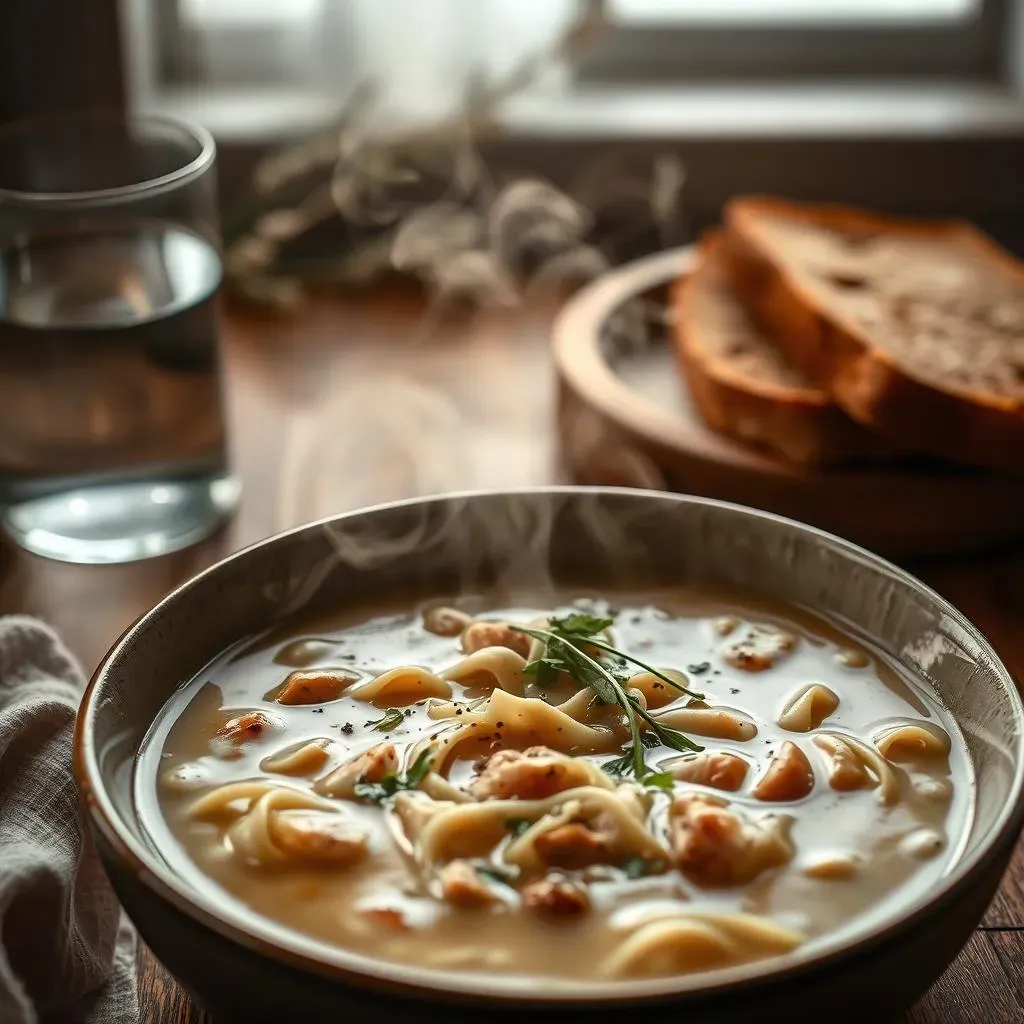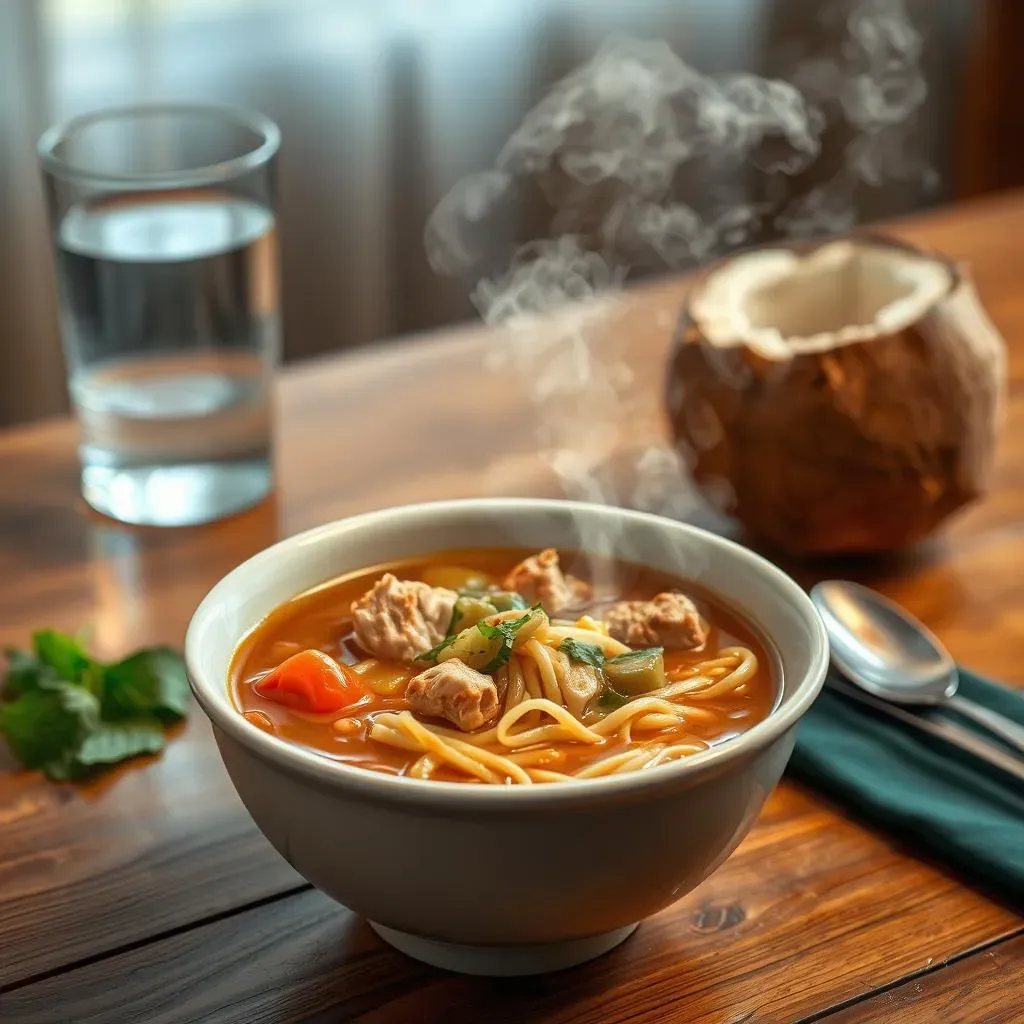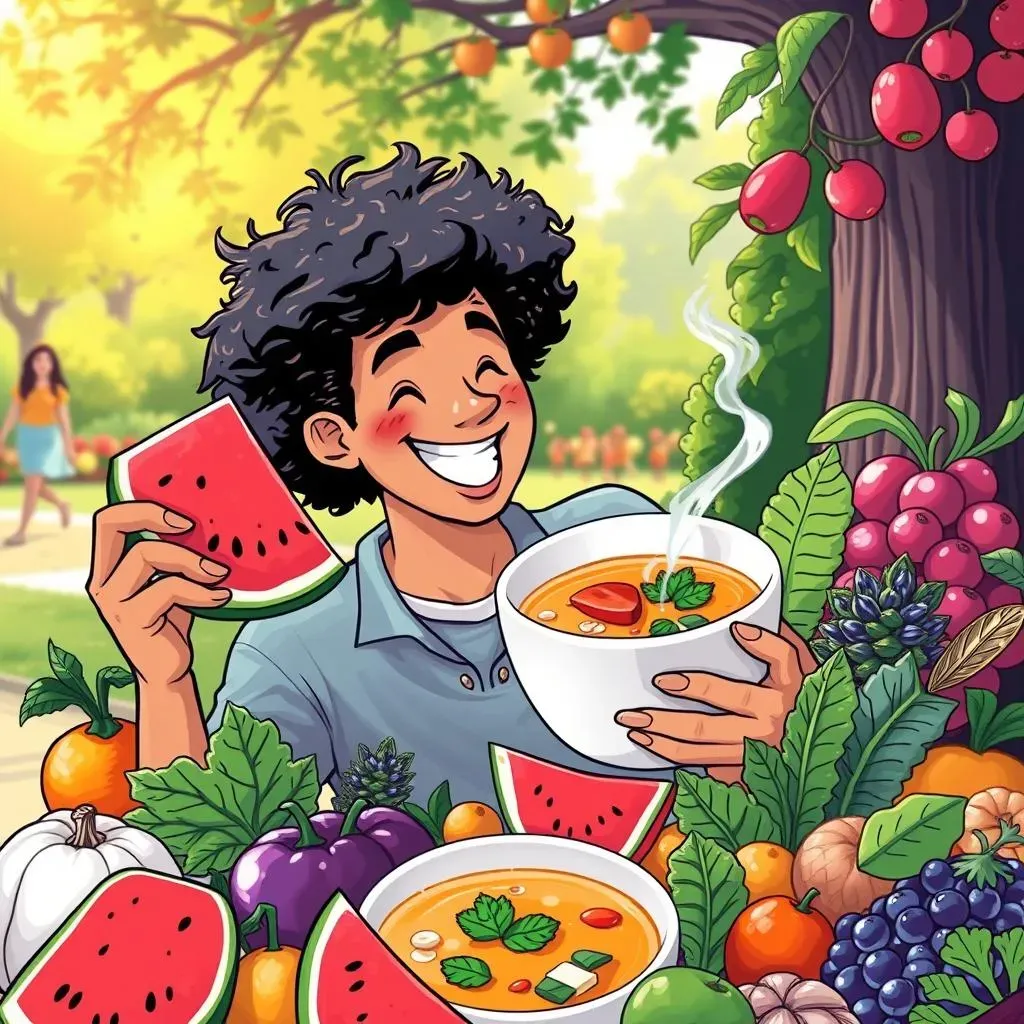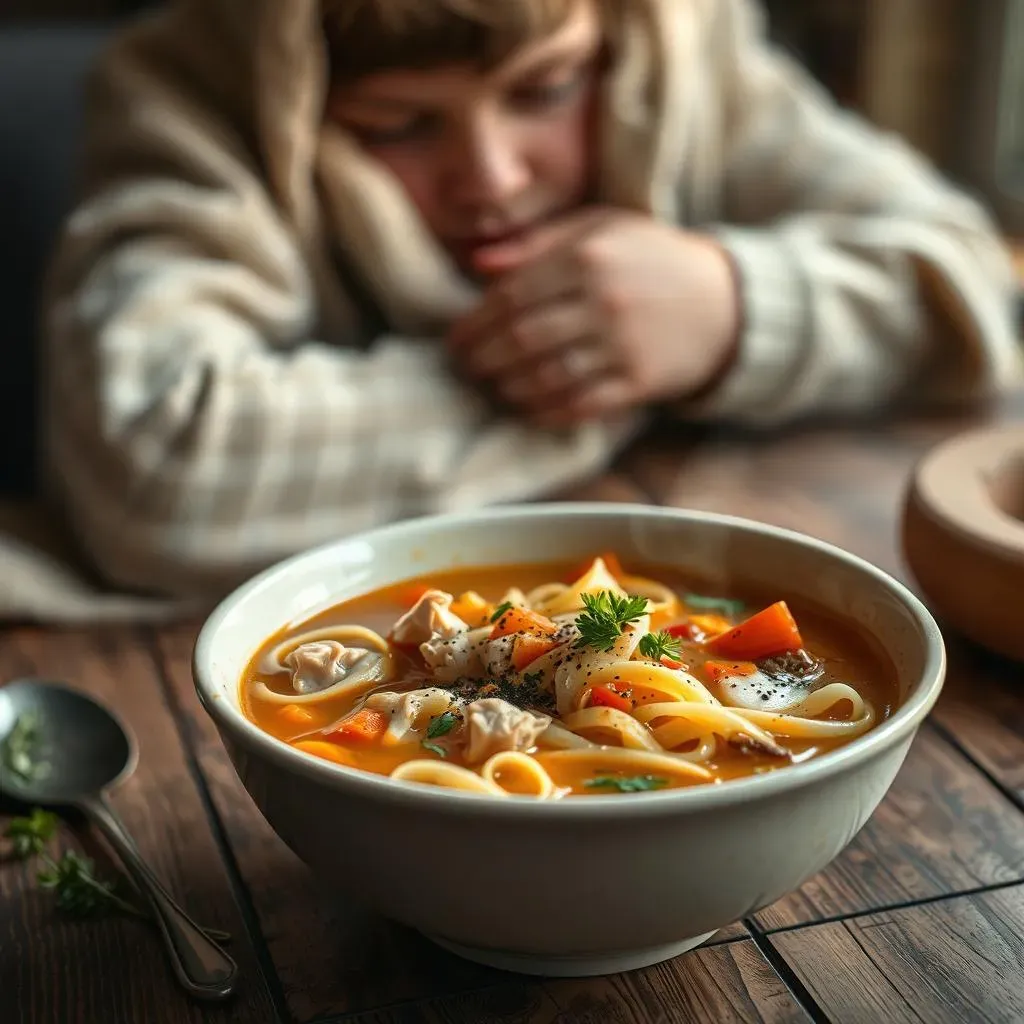Table of Contents
We've all heard the old wives' tale: chicken noodle soup cures a cold. But is there any truth to this comforting classic's ability to help with hydration? Many believe a warm bowl of chicken noodle soup is just what the doctor ordered when you're feeling under the weather, but does it actually boost your hydration levels? In this article, we'll explore the science behind "chicken noodle soup for hydration," separating fact from fiction. We'll examine the soup's components – broth, noodles, vegetables – and how they contribute (or don't) to your body's fluid balance. We'll also look at whether chicken noodle soup is a superior hydration source compared to plain water or other beverages. Prepare to learn if this beloved remedy truly lives up to the hydration hype! Get ready to uncover the truth about this age-old remedy and discover practical tips for staying properly hydrated, whether you're battling a cold or just want to feel your best. Let's dive in!
The Science Behind Chicken Noodle Soup for Hydration

The Science Behind Chicken Noodle Soup for Hydration
So, you're diving into the fascinating world of chicken noodle soup and hydration? That's awesome! Let's break it down. The idea that chicken soup hydrates isn't entirely a myth. It's all about the components. The broth itself provides a significant amount of fluid. Think of it like this: it’s water, plus flavor. But it's not just the water content; the electrolytes present in the broth, particularly sodium, play a crucial role. Sodium helps your body absorb and retain water more effectively. This is especially helpful when you’re fighting off a cold, as illness can sometimes lead to electrolyte imbalances. Plus, the vegetables often included in chicken noodle soup – carrots, celery, onions – contribute additional water and micronutrients, which are essential for overall health and well-being. However, it's important to remember that chicken noodle soup isn't a magic bullet. While it *does* contribute to your daily fluid intake, it's not a substitute for plain water, especially if you’re severely dehydrated.
Component | Hydration Contribution |
|---|---|
Broth | Provides significant fluid volume and electrolytes (sodium). |
Noodles | Minimal hydration contribution; primarily carbohydrates for energy. |
Vegetables | Adds small amounts of fluid and micronutrients. |
One thing to consider is the sodium content. While sodium is helpful for water retention, too much can be detrimental. If you're watching your salt intake, you might want to adjust the recipe accordingly. Also, the type of noodles matters. Thick, hearty noodles might not contribute as much hydration as thinner noodles, as they absorb more broth. Think of it like a sponge; a bigger sponge absorbs more water. Finally, the overall impact of chicken noodle soup on hydration depends on factors like the individual's overall health, the amount of soup consumed, and other fluid intake throughout the day. It’s all about balance, my friend!
- Consider sodium content – adjust recipe as needed.
- Thinner noodles absorb less broth, contributing more to hydration.
- Hydration impact varies based on individual factors and overall fluid intake.
Chicken Noodle Soup: A Hydration Helper or Hype?

Chicken Noodle Soup: A Hydration Helper or Hype?
Comparing Chicken Noodle Soup to Other Hydration Sources
Okay, let's get real. While chicken noodle soup offers some hydration benefits thanks to its broth and electrolytes, it's not a miracle cure. Plain water remains the gold standard for hydration. Water is easily absorbed and doesn't contain added sugars or excessive sodium, unlike many commercially produced soups. Other hydrating options include coconut water (naturally rich in electrolytes), diluted fruit juices, and even sports drinks (in moderation). The key is to choose options that align with your individual dietary needs and health goals. Chicken noodle soup can be part of a balanced hydration strategy, but it shouldn't be your only source, especially during periods of intense physical activity or illness.
Hydration Source | Pros | Cons |
|---|---|---|
Water | Easily absorbed, calorie-free, no added sugars | Can be bland, may not replace electrolytes lost during intense sweating |
Chicken Noodle Soup | Provides fluids, some electrolytes, comforting | Can be high in sodium, calories, and unhealthy fats (depending on recipe) |
Coconut Water | Natural electrolytes, refreshing | Can be high in sugar |
The Verdict: Hype or Helper?
So, is chicken noodle soup a hydration hero or just hype? The truth lies somewhere in the middle. It's definitely a helpful addition to your hydration strategy, especially when you're feeling unwell and need something warm and comforting. The broth provides a decent amount of fluid, and the electrolytes can aid in water retention. However, it's crucial to remember that chicken noodle soup shouldn't be your sole source of hydration, particularly during times of illness or intense physical activity. Plain water, along with other hydrating beverages and a balanced diet, remains the most effective way to maintain optimal hydration. Think of chicken noodle soup as a supportive player, not the star of the hydration show.
- Prioritize plain water for optimal hydration.
- Chicken noodle soup can supplement, not replace, other hydration sources.
- Consider sodium content and other ingredients when choosing a soup.
Boosting Hydration: Recipes and Tips Beyond Chicken Noodle Soup

Boosting Hydration: Recipes and Tips Beyond Chicken Noodle Soup
Beyond the Broth: Exploring Other Hydrating Foods
So, you've grasped the chicken noodle soup hydration situation? Great! But hydration's a whole world beyond that cozy bowl. Think of fruits and vegetables as nature's hydration powerhouses. Watermelon, cucumbers, and berries are practically bursting with liquid. They not only quench your thirst but also provide essential vitamins and minerals. Don't forget about leafy greens like spinach and kale! And guess what? Even soups other than chicken noodle soup can be hydrating powerhouses. Think vegetable broth-based soups, lentil soup, or even a hearty minestrone. Just watch out for creamy soups, which tend to be higher in fat and calories. Remember, variety is key!
Hydrating Food | Hydration Benefits |
|---|---|
Watermelon | High water content, refreshing |
Cucumbers | High water content, low calorie |
Berries | High water content, antioxidants |
Leafy Greens | Good source of vitamins and minerals |
Smart Hydration Strategies: Beyond Food and Drink
Hydration isn't just about chugging water and eating soup (though those are important!). Lifestyle plays a huge role too. First, listen to your body. Thirst is a clear signal, so drink when you're thirsty. Don't wait until you're parched. Second, consider your activity level. If you're sweating a lot – from exercise or hot weather – you'll need to drink more fluids. Third, monitor your urine color. Pale yellow is ideal; dark yellow suggests you need more fluids. Finally, and this might sound strange, but pay attention to the air you breathe. Dry air can dehydrate you, so use a humidifier, especially in winter. Staying hydrated is a holistic process – it's about building good habits, not just quick fixes.
- Drink when thirsty; don't wait until severely dehydrated.
- Increase fluid intake during physical activity or hot weather.
- Monitor urine color; pale yellow is ideal.
- Use a humidifier in dry environments.
